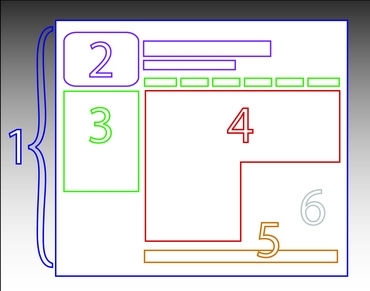 I'm often asked this question by friends and business acquaintances as they know I have been in the systems business for a number of years. My pat answer to them is simply, "It depends." Some people think their "whiz-kid" son or daughter can bang something out rather quickly, and maybe they can, but will it really do the job for them?
I'm often asked this question by friends and business acquaintances as they know I have been in the systems business for a number of years. My pat answer to them is simply, "It depends." Some people think their "whiz-kid" son or daughter can bang something out rather quickly, and maybe they can, but will it really do the job for them?
I say, "It depends," because it is ultimately up to the type of business or organization you have and what you want to communicate. I categorize web pages into two types: Static and Dynamic. Static means it is a simple page where people can look up basic information for reference purposes. Dynamic refers to a web page which provides for more user interaction, such as to pose questions, place orders, participate in surveys, etc.
If you have a simple business organization and all you want to do is list your company's name and address, then I would say, Yes, little Joey can probably whip something together for you. Static web pages are great for basic information, but because they are not updated too often, they do not encourage return visitors. However, this may not be important if all you are trying to do is take a "Yellow Pages" approach to listing your business. If you need something a little more sophisticated though, No, little Joey probably won't be able to handle it and you will waste a lot of money getting to where you want to go.
Static web pages can be easily produced using common Word Processing utilities, desktop publishing tools, or manually using some simple HTML tags (Hyper Text Markup Language). Dynamic pages require a little more oomph though, requiring special design tools and programming talent; e.g., Java, JavaScript, PHP, XML, ColdFusion, etc. All of this obviously costs more than what you're paying little Joey.
I find most companies go into a web design project rather naively. Frankly, I think you should go into it with a more structured approach, such as requirements definition (including a Table of Contents), prototype graphical appearance and navigation, and complete the assignment accordingly. Further, I tell people to think "virtually," whereas they may have historically felt constrained in publishing sales literature, a web page has no practical limitations. However, I caution them to avoid the "War and Peace" phenomenon which tends to alienate users who, in most situations, want to quickly lookup answers to their questions.
Because of the spin from I.T. vendors, there is also a general perception that web page design is easy. Consequently, companies become impatient for results. Actually, web page design is no different than the design of anything; the greater the complexity, the longer it is going to take, which is why it is not a bad idea to use Project Managers on major web design projects.
So, how easy is it to build a web page? Actually, it is rather simple, but the real question should be, "How easy is it to build an EFFECTIVE web page?" Just about anyone familiar with a computer can produce a web page, but building something that truly works for you requires more skill. True, there are some slick design tools out there, but there is no substitute for experience and polished skills, not to mention some design standards as well.
Keep the Faith!
Note: All trademarks both marked and unmarked belong to their respective companies.
 Tim Bryce is the Managing Director of M. Bryce & Associates (MBA) of Palm Harbor, Florida and has over 30 years of experience in the management consulting field. He can be reached at timb001@phmainstreet.com
Tim Bryce is the Managing Director of M. Bryce & Associates (MBA) of Palm Harbor, Florida and has over 30 years of experience in the management consulting field. He can be reached at timb001@phmainstreet.com
For Tim's columns, see:
http://www.phmainstreet.com/timbryce.htm
COMING IN JULY: "Tin Heads" - where transportation merges with communications. What is Bryce up to now?
No comments:
Post a Comment